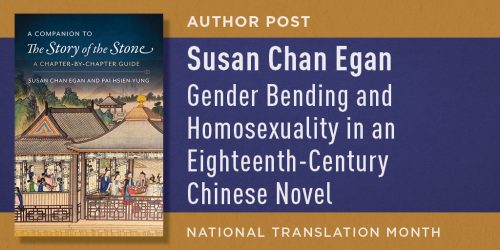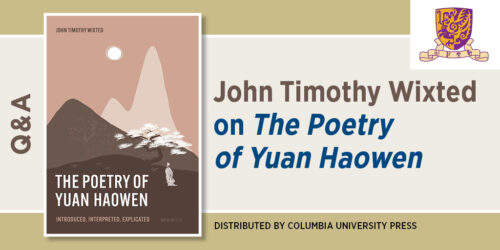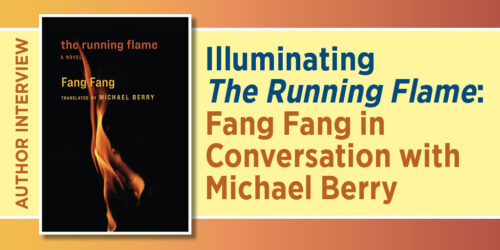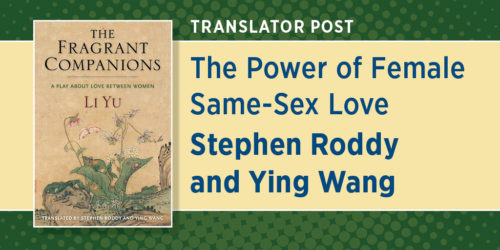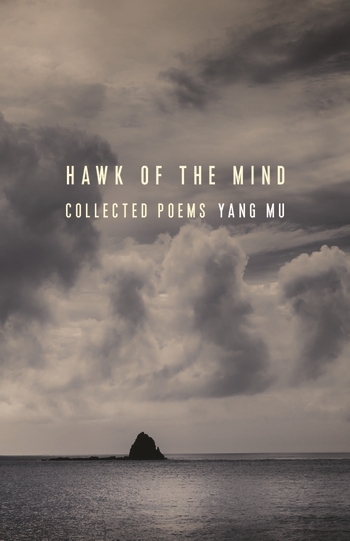C. T. Hsia, 1921-2013
We were very sad to learn of the death of legendary Chinese literary critic C. T. Hsia at the age of 92. Columbia University Press was fortunate to publish several of Hsia’s works including C. T. Hsia on Chinese Literature and the forthcoming The Columbia Anthology of Yuan Drama, which he co-edited with Wai-yee Li and George Kao.
In a recent interview with the New York Times, Harvard professor and literary scholar and editor of our series Global Chinese Culture, David Der-wei Wang discussed the work and legacy of Hsia and his lasting impact on the study of modern Chinese literature. Hsia, Wang suggests, is responsible for introducing modern Chinese literature to the West and championing such writers as Qian Zhongshu, Shen Congwen, and Eileen Chang.
Hsia’s career as a scholar of modern Chinese literature was in many ways a result of Cold War politics. In the interview, Wang explains:
[Hsia] wanted to pursue a degree in English literature and was caught in the so-called Cold War cultural politics of the 1950s. This was a young man with great expectations. He loved English literature and European culture. He grew up in cosmopolitan Shanghai, then the civil war happened in China and he got stranded and couldn’t go back. And couldn’t find a good position in the U.S. at a college…
In 1951, David Rowe [a professor of political science at Yale University] hired him to compile a manual for the Korean War: “China: An Area Manual.” He got bored and left, but along the way he gathered a real knowledge of Chinese literature, something he didn’t have before that. Eventually he became more and more involved in Chinese literature studies. In the 1950s, there was no field called modern Chinese literature, so the publication of his book in 1961 [History of Modern Chinese Fiction], that was a big thing. That was a book that made him famous in the West. As a result, a discipline was established.
Hsia’s career was not without controversy. He was often criticized for his Euro-centric, anticommunist stance as well as his New Critical criteria. He also advanced the provocative and influential perspective that Chinese writers have had an “obsession with China,” sometimes to the detriment of the literature. Again, Wang explains:
[Hsia] reviewed the development of Chinese fiction to the end of the 1960s and how people were obsessed with the malaise in their own nation. They didn’t have the energy or the mind to turn their attention to anywhere outside China. And they saw China as a center of malaise and injustice. He felt it was a self-defeating attitude that cut two ways. In one way it could produce a true sense of urgency in an old empire, an old civilization. But he found all that an almost sadistic culture, and he used the term to critique Chinese modernity.
He argued, we need to look beyond China to really engage with the world, with Western civilization, even if was sick too. Kafka, Joyce and Proust would never have ghettoized the problems of their own civilization. He argued, if only Chinese writers could have the magnanimity to look beyond their own culture. Parochialism is the word he liked to use.
Wang concludes his interview by arguing that Hsia’s argument about China’s obsession with China continues to be relevant even as China’s influence in the world is growing:
Hsia’s point about self-obsession, made in 1971, has some relevancy today. Then it was self-defeating, but today it’s self-aggrandizing. I am a more cautious person. I don’t think I have the magisterial confidence about others’ obsession with China. But I feel this theory is a really critical interface for us to engage with the past and the future of China. One may disagree with Hsia, but one cannot overlook the arguments he made all those years ago.



